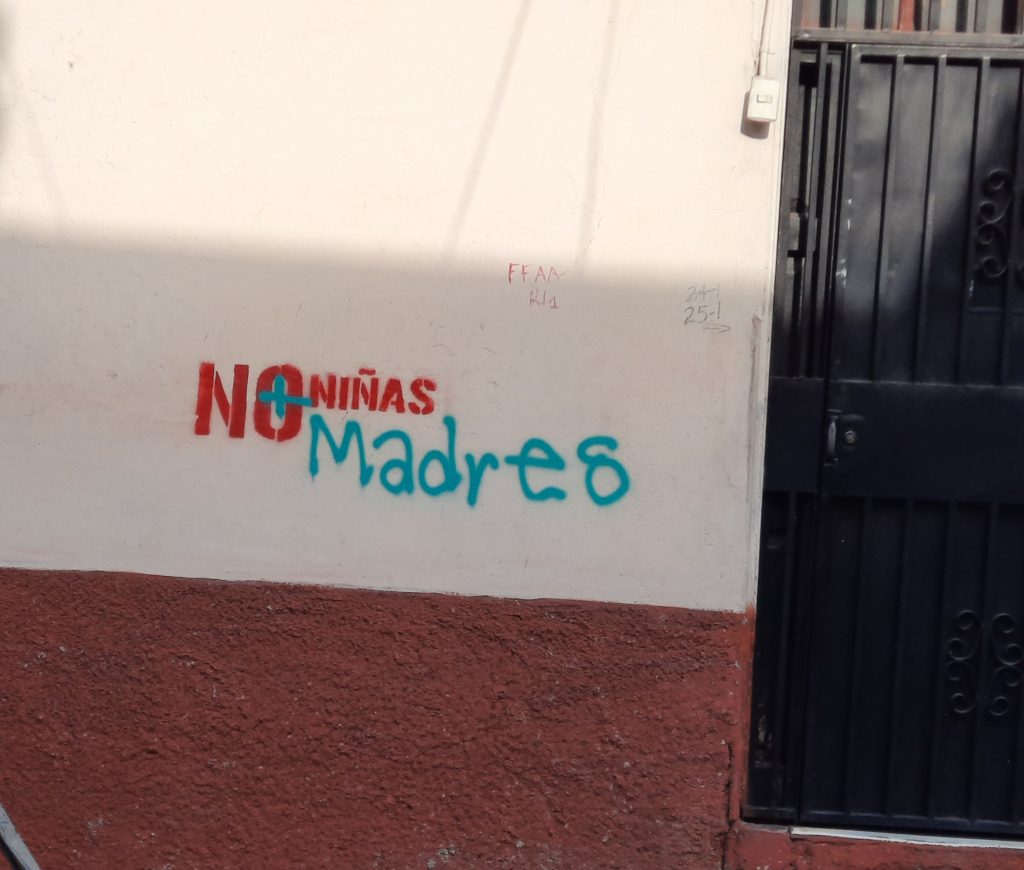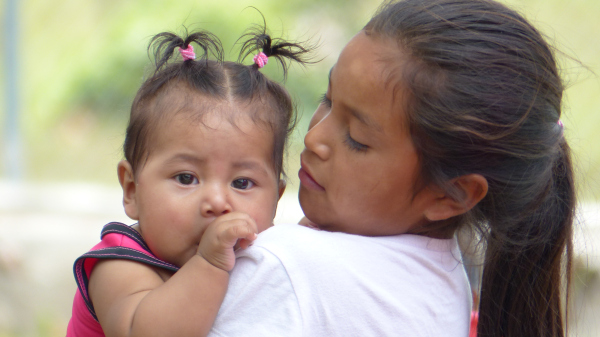In Honduras, mothers’ day is celebrated every year on the second Sunday of May. However, this day will not be a happy day for girls and adolescents who have experienced motherhood at an early age.
Child moms in Honduras
Elisa was 14 years old when she revealed to her parents that she was pregnant. Her parents and her boyfriend’s parents agreed that the minors had to marry. At that time, she was an eighth grader at a private institute and had to drop out of school and her boyfriend go to work.
Two years after, she became pregnant again, and so on many more times. She never resumed her studies and years later emigrated to a country in North America, looking for a place where her activities were more remunerative and to provide her children with other opportunities that she did not have in her country.
This real story happened in Honduras a few decades ago. And although time has passed, Elisa’s story continues to repeat to other teenagers and children, because according to the National Survey of Demography and Health of each day of 2018 year, more than 70 girls, from 10 to 19 years old became mothers.

In 2018, the girl population from 10 to 19 years old was 435.671 of those, 26.823 gave birth, that it means from every 1.000 girls, 62 were pregnant. And from those who became early mothers, 770 cases were of children between the ages of 10 and 14, and the majority were victims of abuse.
This shocking date is taking into account by the Pan American Health Organization (PAHO), which in September 2020 held a Commemorative week for the prevention of adolescent pregnancy.
At that event, Dr. Elvia Ardón, General Director of Standardization of the Ministry of Health of Honduras, explained that adolescent pregnancy is a problem of public health, development, Human Rights, inequities, and multiple causes.
He added that many adolescents are forced to become mothers at an incredibly young age, and that the pandemic has increased the challenges of adolescent girls who suffer from violence in their own homes.
For her part, Dr. Evelyn de Graff, from the PAHO in Honduras, said that it is important to make visible the needs in favor of vulnerable groups of adolescents, and that they will provide access to family planning methods to replicate them in the regions of all countries.

Honduran child with her daughter in San Esteban, Honduras (Image Leire Regadas)
For FORBETTERCOMMUNITY this is not only a public health problem, but a problem that increases the crisis in the educational system, since young women who have early pregnancies have their educational process interrupted because they will have to attend a birth and a motherhood that will truncate their life as students.
The motherhood of adolescents and girls is one of the many challenges that must be faced in a way of solidarity and responsibility; adolescent girls should be supported by public and private institutions and that communication with their parents be freer and more trustworthy.
Adolescence is a stage that involves being full of experiences that are forming for adulthood and for this time to serve to prepare professionally, that they can face life in a more appropriate way and be agents of development for the country.
Teenagers from rural areas, ethnic and illiteracy children are leaving behind the governmental programs. Such as in Honduras, 43% of infants live in extreme poverty, which is the greatest limitation for development.
Our organization emphasizes that extreme poverty must be fought so that girls can exercise their rights. It is important to strengthen the health and education system by allocating more budget to develop sexual education and contraceptive programs.
For FORBETTERCOMMUNITY it is important that parents strengthen family ties with their girls and establish communication channels full of trust where they can speak freely about their sexuality and how to handle it.


Leave a Reply